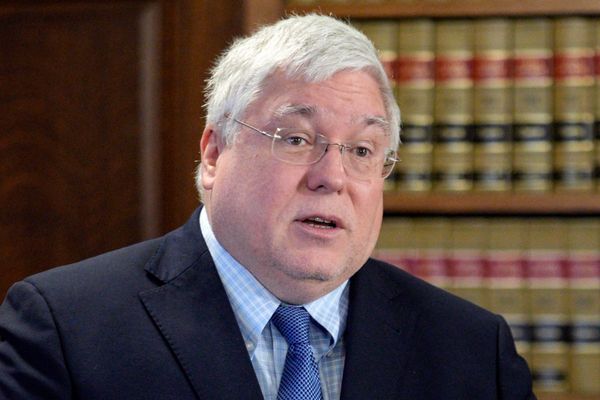Trump tariffs may focus narrowly on industries and resources key to national security, including defense-related industries, energy and critical medical supplies, The Washington Post reported early Monday, though President-elect Donald Trump denied that report.
Even with Trump's denial, the S&P 500 rose solidly, with Nucor and Freeport-McMoRan among the top gainers amid prospects for tariffs on steel, copper, batteries and solar panels.
Ford Motor and General Motors rallied on hopes that cars produced in Mexico and Canada might dodge a direct hit from Trump tariffs. However, the automakers pared early gains after Trump's denial.
Trump Tariff Shift?
The report indicated that Trump's economic advisers are honing a plan that would still embody the universal tariffs of up to 20% that he campaigned on. But instead of imposing tariffs on all imports, which could raise inflation and stymie further Federal Reserve rate cuts, they are considering tariffs focused on industries whose protection is a matter of national security.
The tariffs would still apparently be universal in nature, meaning certain categories of goods would face an import tax no matter where they're shipped from. That would avert efforts by countries such as China to escape tariffs by rerouting goods through third-party countries before entering the U.S.
The Trump team's reported inclusion of alternative energy as a key industry bodes well for the group as Congress considers whether to roll back alternative energy credits in the Inflation Reduction Act.
Trump Denies Tariff Report
But Trump, responding on his Truth Social site, said the Washington Post story "incorrectly states that my tariff policy will be pared back. That is wrong."
Trump has touted revenue from tariffs as a big component of his fiscal plans. A narrow approach wouldn't raise much, leaving a bigger fiscal hole to fill.
Imposing tariffs on strategic goods that are in short supply could help boost U.S. production in the long run, but potentially exacerbate supply concerns near term.
One possibility is that Trump's advisers are considering tariffs on strategic goods as an initial step, but he isn't backing away from an eventual imposition of broad-based tariffs.
NUE, ENPH, F, FCX, MP
Steel stocks are among the S&P 500 leaders in early Monday stock market action, with Nucor rising 4.6% and Steel Dynamics 5.4%. Nucor and other steel stocks have tumbled recently amid weak steel pricing on oversupply concerns.
FCX stock is climbing 2.9%. Copper futures climbed 2%.
Enphase Energy, which supplies batteries and advanced microinverter technology that makes solar systems more efficient, is among a group of solar stocks that charged higher early in the session. However, ENPH edged up 0.6%, after an early 4% advance. Meanwhile, First Solar and Sunrun are both up around 4%. SolarEdge, an Israel-based rival to Enphase, rallied 12% as it announced agreements to supply two of the largest U.S. solar installation firms.
MP Materials, the major U.S. producer of rare earth materials used in EV motors and other advanced technologies, surged 15%.
Ford, which has been in the crosshairs of Trump's threat to impose 25% tariffs on all imports from Mexico and Canada, rose 1.1%, while GM darted ahead 3.2%. While avoiding a direct hit from tariffs, they could still experience higher steel prices as result of Trump's evolving plan.
S&P 500
The S&P 500 rose 0.6% in Monday afternoon stock market action, retaking its 50-day moving average though coming well off its intraday high.
Despite rallying 1.3% on Friday, the S&P 500 still slipped 0.5% last week to finish 2.4% off its Dec. 6 all-time high.
Be sure to read IBD's The Big Picture column after each trading day to get the latest on the prevailing stock market trend and what it means for your trading decisions.







